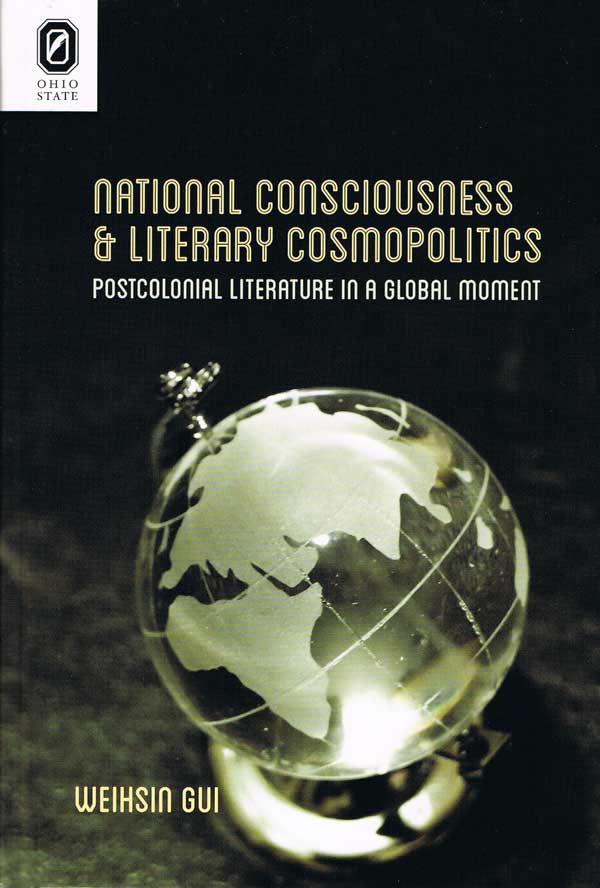National Consciousness and Literary CosmopoliticsPostcolonial Literature in a Global MomentWeihsin GuiTransoceanic Studies |
 8/19/2013 Literary Criticism/ 220 pp. 6x9  $59.95 cloth 978-0-8142-1230-1 Add cloth to shopping cart $27.95 paper 978-0-8142-5422-6 Add paper to shopping cart $14.95 CD 978-0-8142-9332-4 Add CD to shopping cart Shopping Cart Instructions Review/Change Shopping Cart & Check-out | |||
|
Explore More John Marx, Geopolitics and the Anglophone Novel, 1890–2011 Bishnupriya Ghosh, When Borne Across: Literary Cosmopolitics in the Contemporary Indian Novel |
“Few books have as good a feel as this one does for literature’s contribution to the ongoing challenge of figuring out what comes after globalization. By making connections among disparate theories and fields of literature, Weihsin Gui shows how the next generation of postcolonial critics will be renovating literary study, especially study dedicated to thinking about literature in social and political terms. The future of postcolonial scholarship, in short, is available now in this volume.” —John Marx, associate professor of English, University of California, Davis “National Consciousness and Literary Cosmopolitics is a critically accomplished, well-written, and carefully executed monograph in postcolonial and Anglophone literary studies. Weihsin Gui’s knowledge of his field is erudite, and his aligning of salient critical perspectives is precise yet rich. Most importantly, Gui’s clear prose style makes the book attractive not only to scholars but also to undergraduate and graduate students.” —Bishnupriya Ghosh, professor of English, University of California, Santa Barbara National Consciousness and Literary Cosmopolitics: Postcolonial Literature in a Global Moment by Weihsin Gui argues that postcolonial literature written within a framework of globalization still takes nationalism seriously rather than dismissing it as obsolete. Authors and texts often regarded as cosmopolitan, diasporic, or migrant actually challenge globalization’s tendency to treat nations as absolute and homogenous sociocultural entities. While social scientific theories of globalization after 1945 represent nationalism as antithetical to transnational economic and cultural flows, National Consciousness and Literary Cosmopolitics contends that postcolonial literature represents nationalism as a form of cosmopolitical engagement with what lies beyond the nation’s borders. Postcolonial literature never gave up on anticolonial nationalism but rather revised its meaning, extending the idea of the nation beyond an identity position into an interrogation of globalization and the neocolonial state through political consciousness and cultural critique. The literary cosmopolitics evident in the works of Kazuo Ishiguro, Derek Walcott, Shirley Geok-lin Lim, Preeta Samarasan, and Twan Eng Tan distinguish between an instrumental national identity and a critical nationality that negates the subordination of nationalism by neocolonial regimes and global capitalism. Through their formal innovations, these writers represent nationalism not as a monolithic or essentialized identity or body of people but as a cosmopolitical constellation of political, social, and cultural forces.
| |||


 Weihsin Gui
Weihsin Gui